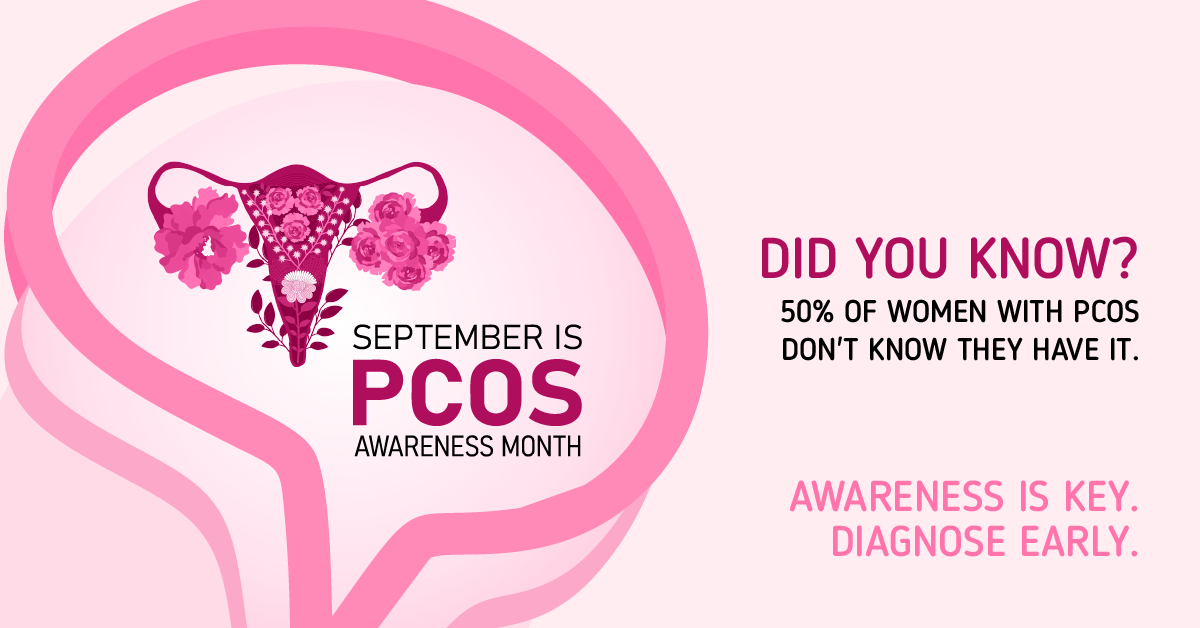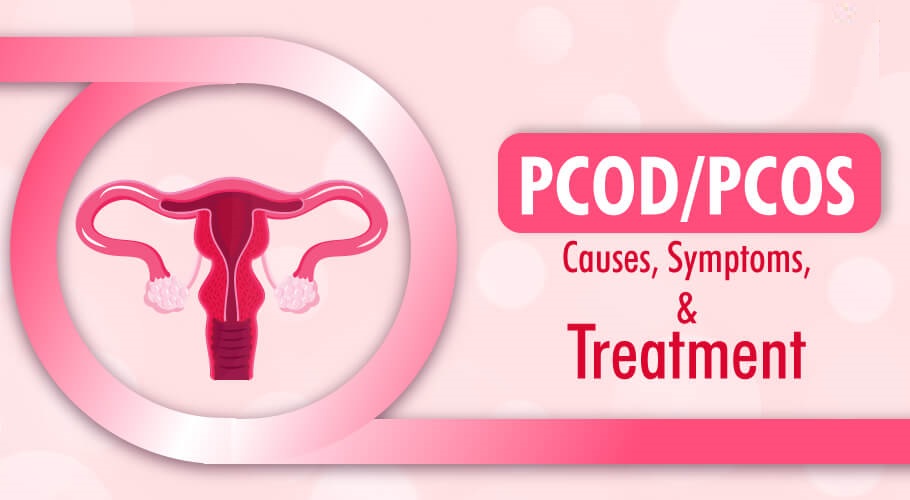Causes of PCOS
The exact causes of PCOS are still unknown. But, it is speculated that it occurs as a result of some genetic and environmental factors that gear up the hormones. Some of these factors include:
Insulin Resistance: One of the common things that are blamed for PCOS is excess insulin in the body. Now, insulin is a hormone produced by the pancreas in order to use glucose in our body. Insulin resistance indicates a situation where there is excess production of insulin in the body. This affects the normal ovulation function of the ovaries by increasing the production of male hormones.
Family History: In most PCOS cases, the patient has a family history of PCOS. It is seen in some researches that certain genes are linked to this condition that can pass on to one generation from the other.
Excess Androgen: Androgen or also called male hormones are found in limited quantities in every female body. But, women with PCOS have excess production of androgens. Higher than normal male hormones in the female body don’t allow the ovaries to release the eggs, causing excess hair growth and acne as a result.
Inflammation: It is seen that women with PCOS have high levels of inflammation in their bodies. This inflammation is also related to obesity sometimes. The result of this inflammation in the body is seen as an increment in the male hormones.
Symptoms of PCOS
The symptoms of PCOS differ according to different women. Some of the common symptoms of PCOS are:
Irregular periods
Excess hair growth on the back, face, and stomach
Male pattern baldness
Severe acne
Weight gain
Infertility Issues
emotional challenges like depression and/or anxiety
It is noted that all these symptoms are not necessarily experienced by all PCOS patients.
Is it linked to other health issues?
Yes, some studies have shown that there is some link between PCOS and other health conditions like:
Diabetes: It is seen that more than 50% of women with PCOS may have diabetes or prediabetes (glucose intolerance) at the age of 40 or before.
High blood pressure: PCOS patients are at high risk of having high blood pressure compared with other women of a similar age without PCOS. High blood pressure increases the risk of heart disease and stroke.
Unhealthy cholesterol: It is seen that patients with PCOS have higher levels of LDL (bad) cholesterol along with low levels of HDL (good) cholesterol. Also, High cholesterol also raises the risk of heart disease and stroke.
Sleep apnea: It is a condition in which momentary and repeated stops in breathing interrupt someone’s sleep. Women with PCOS that are overweight or obese, can experience sleep apnea.
Mood Swings: Mood Swings like Depression and anxiety are common among PCOS patients.
Endometrial cancer: PCOS means problems with ovulation, insulin resistance, obesity, and diabetes increase the risk of developing endometrial cancer in women. This happens due to irregular and improper shedding of the endometrium lining due to irregular periods.
Diagnosis of PCOS
For diagnosing PCOS, there is no specific test that confirms this health condition. The doctor considers all the signs and symptoms of a patient and then rules out other related disorders. During this ruling procedure, your doctor will talk about your medical history, period cycle, weight changes, and some other symptoms. He can also perform some more tests like:
Physical Examination: During this physical examination, your doctor will ask and note down several pieces of information, that will include your height, weight gain, and blood pressure, etc.
Pelvic Examination: During a pelvic examination, your doctor will inspect your reproductive organs visually and manually for signs of some irregular masses, growths, or other possible abnormalities.
Blood Tests: Your doctor will do some blood tests to measure the levels of certain hormones to rule out possible causes of menstrual abnormalities or the androgen excess that indicates PCOS. These tests mainly include AMH, FSH, LH, and testosterone levels.
Ultrasound: An ultrasound exam can indicate the condition of your ovaries and can tell about the thickness of the lining of the uterus.
Management of PCOS
The treatment of Polycystic ovary syndrome generally focuses on the management of the patient’s individual concerns like infertility, hirsutism, obesity, or acne. This management can be done by:
Lifestyle changes: The very first step in treating or managing PCOS has to be lifestyle changes. Your doctor may recommend you to lose some weight through a low-calorie diet along with moderate exercises. Even a slight reduction in weight can improve your condition.
Hormonal pills: Your doctor may prescribe some medications to regulate your period cycle. To do this, your doctor may recommend a combination of birth control pills — pills that include both estrogen and progestin. These birth control pills will decrease the androgen production in the body and will give it a break from the effects of estrogen by lowering the risk of endometrial cancer. If your doctor thinks that you are not suitable for combination birth control pills, then he may choose an alternative approach by asking you to take progesterone for 10 to 15 days every one to two months. This progesterone therapy may regulate your period cycle and also offers protection against endometrial cancer.
Metformin: Your doctor may prescribe metformin which is an oral medication for type 2 diabetes. This improves insulin resistance and lowers the insulin levels in the body. The metformin may help with your ovulation and result in regular menstrual cycles. It also slows the progression of type 2 diabetes if you already have prediabetes. It also helps in losing weight if you also follow a proper diet and exercise program.
Help you ovulate: If you have PCOS and you’re trying to become pregnant, it is important to take medication that helps in ovulation. Clomiphene and Letrozole are ovulation-inducing medications that are to be taken in the first part of the menstrual cycle. If these drugs are not effective, your doctor may add metformin in this dosage to help induce ovulation.
Reduce excessive hair growth:To reduce excess hair growth, your doctor may prescribe birth control pills to decrease androgen production in the body, or some other medicine called spironolactone (Aldactone) which blocks or stops the effects of androgens on the skin. It is important to remember that spironolactone can cause birth defects which is why effective contraception is required while using this drug. Also, it’s not recommended during pregnancy or planning a pregnancy.
PCOS AND INFERTILITY
PCOS can disturb your period cycle, can affect your ovulation, and cause female infertility. It can cause anovulation where your ovaries do not release an egg during the menstruation cycle, thus decreasing all the pregnancy chances. Women with PCOS either have ovulation failure or some presence of cysts in the ovaries that causes infertility issues.
High-level male hormones and insulin affects the menstrual cycle and disturbs the regular release of an egg every month. Every month when an egg gets released it is called ovulation. But when this doesn’t happen it is referred to as anovulation. This irregularity in ovulation can cause difficulties in getting pregnant and can also cause chances of miscarriage in some women.
It is important to know that not all women with PCOS are infertile. But yes, PCOS affects fertility in women and causes hurdles in conceiving.



